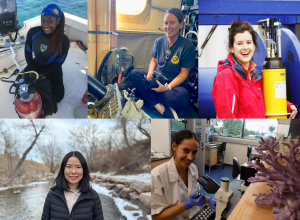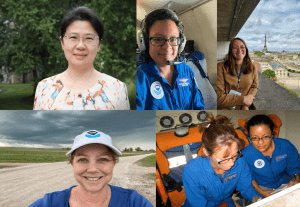At the end of October, a small team of NOAA experts traveled to Glasgow, Scotland to attend the 26th United Nations Climate Change Conference of the Parties (COP26), an international summit aimed at accelerating climate action across the globe. Among them is Ko Barrett, NOAA’s Senior Advisor for Climate and a globally-recognized expert on climate policy.
Barrett currently serves as the Vice Chair of the Intergovernmental Panel on Climate Change (IPCC). The IPCC was founded as the United Nations’ body for assessing science related to climate change, and IPCC reports are a key input into the international negotiations at COP. At COP26, IPCC representatives will be sharing the high-level scientific findings of the latest IPCC Report – The Working Group I contribution to the Sixth Assessment Report with the COP26 delegates. Many NOAA scientists contributed to the IPCC report and NOAA is using the new insights from this report to inform the work it does with communities to prepare for, respond to, and adapt to climate change.
Barrett has had a storied career in climate policy. In 2015, she became one of the first women elected to serve as a vice chair of the IPCC. In this role, she helps produce IPCC reports and assessments on the state of climate science and serves as a representative of the IPCC organization. Barrett has two decades of experience representing the United States as a climate negotiator, bringing the science of the IPCC reports to policymakers. She has served as the lead U.S. climate adaptation negotiator to the United Nations Framework Convention on Climate Change, and was instrumental in negotiating the Global Framework for Climate Services under the World Meteorological Organization.
Prior to her current role, Barrett served as the NOAA Research Deputy Assistant Administrator for Programs and Administration, where she supervised daily operations and administration of several major NOAA research programs. Ms. Barrett has also served as deputy director of NOAA Research’s Climate Program Office.
“I think you have to be an optimist when you work on climate,” Barrett said in an interview with Climate.gov in 2018. “It is a long-term problem. It is not going to be solved overnight. And it takes the global community working together. It’s just the small successes over time that keep you going.”





